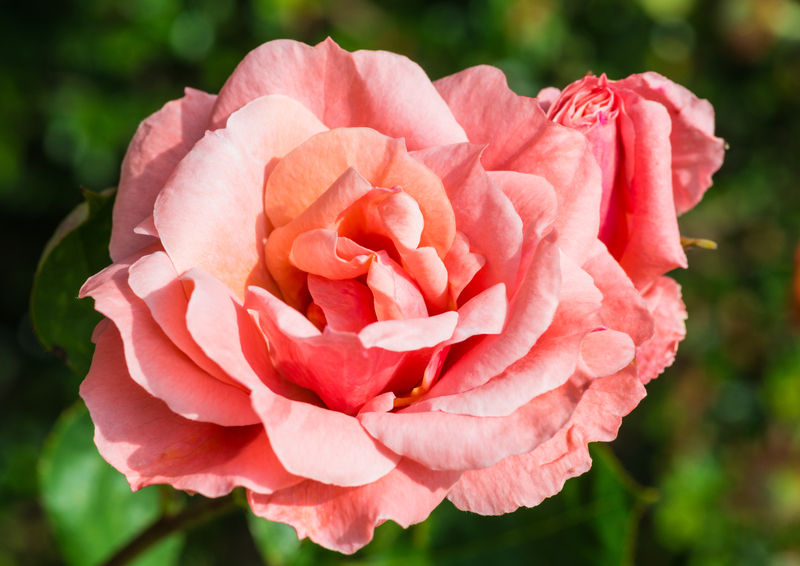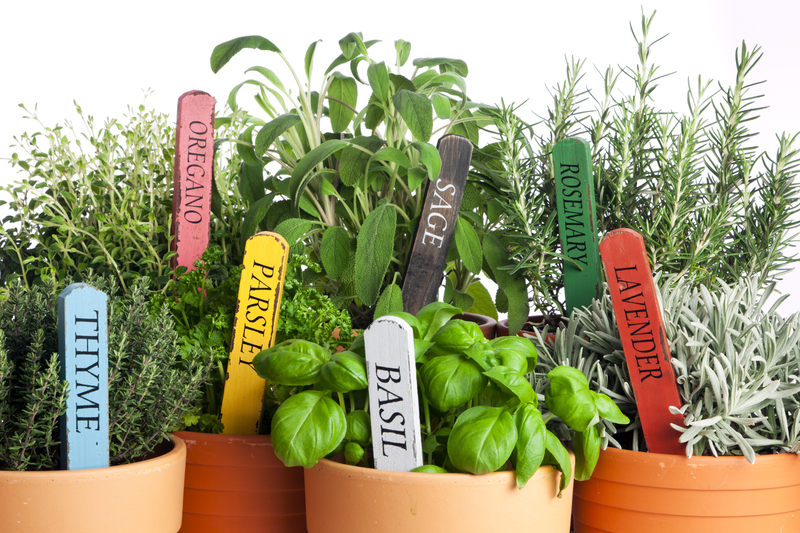Prepare Your Garden for Winter with These Expert Tips
Posted on 26/08/2025
Prepare Your Garden for Winter with These Expert Tips
As winter approaches, the thought of chilly winds and frost can make even the most enthusiastic gardeners a bit apprehensive. Preparing your garden for winter isn't just about ensuring survival; it sets the stage for thriving plants come spring. Interested in saving time, preserving your plant investments, and optimizing next year's harvest? Dive into these expert strategies to get your garden winter-ready.
Why Is Winter Garden Preparation Essential?
Many gardeners underestimate the benefits of preparing a garden for winter. Neglecting this process can lead to plant loss, soil erosion, pests, and decreased productivity in the following growing season. Pre-winter garden care ensures your plants, soil, and outdoor spaces remain healthy and beautiful.
- Protect sensitive plants from frost and cold winds.
- Enhance soil nutrient levels to support spring growth.
- Reduce pest and disease prevalence over winter.
- Maintain the look and structure of ornamental gardens.

Inspect and Tidy Up the Garden Space
Garden cleanup before winter is more than cosmetic. Dead leaves and spent plants can become breeding grounds for pests and diseases.
Remove Dead and Diseased Material
- Pull out all spent annuals, diseased plant parts, and rotting vegetables.
- Prune perennials only as needed--some benefit from winter dieback, while others can harbor disease if left unchecked.
Clear Fallen Leaves
- Use a rake to clear layers of wet leaves from flower beds and lawns. Leaves left on the ground may suffocate plants or promote fungal growth.
- Compost healthy leaves, but discard any showing signs of disease or pest infestation.
Enrich and Protect Your Soil
Healthy soil is the foundation of any successful garden. Preparing garden beds for winter means nourishing and shielding your earth from the elements.
Add Organic Matter
- Spread a thick layer of compost, well-rotted manure, or leaf mold over beds. This slowly releases nutrients through the winter months.
- Don't forget to mulch. A 2-4 inch *blanket* of straw, bark chips, or shredded leaves protects roots, retains moisture, and keeps soil microbes active.
Consider Cover Crops
- Planting winter cover crops (also called green manure) like clover or winter rye can prevent erosion, suppress weeds, and add nutrients back into the soil when tilled in spring.
Protect Perennials and Delicate Plants
Some plants need more winter protection than others. These best practices ensure perennials, bulbs, and shrubs survive until spring.
Mulch Around Perennials
- Apply additional mulch around the base of tender perennials.
- Use straw, pine needles, or chopped leaves for added insulation.
- Keep mulch a few inches away from stems to avoid rot.
Shield Delicate Plants
- Wrap young trees and shrubs with burlap, especially evergreens stung by drying winter winds.
- Consider movable cloches or row covers to protect susceptible flowers or vegetables.
- Dig up and store non-hardy bulbs, such as dahlias and gladioli, in a frost-free area.
Prepare Your Lawn for the Cold
A winter-ready lawn emerges lush and green come spring. Here's how to give it a strong start:
- Mow grass one final time before the deepest frosts--about 2 to 2.5 inches tall protects roots without matting.
- Rake away accumulated thatch and debris.
- Aerate compacted lawn areas to improve drainage and root growth.
- Apply a fall fertilizer rich in potassium to strengthen root systems for winter resilience.
Winterize Water Systems and Garden Tools
Frozen water and neglected equipment can spell disaster for gardens. Protect your investments by following these steps:
Drain and Store Hoses and Irrigation
- Disconnect garden hoses and irrigation lines. Drain all water to prevent cracking.
- Store hoses and sprayers in a frost-free shed or garage.
Care for Gardening Tools
- Clean and dry all garden tools thoroughly.
- Sharpen blades, oil metal parts, and check for damage or wear.
- Store tools indoors to prevent rust and degradation.
Safe Storage for Garden Furniture and Accessories
Outdoor furniture, pots, and decorations can be damaged by ice and snow.
- Clean and store terracotta and ceramic pots indoors--frozen moisture can crack them.
- Cover or store outdoor furniture. Use waterproof tarps if space indoors is limited.
- Remove solar lights, decorative stakes, and delicate fixtures before the ground freezes.
Plan for Wildlife During Winter
A garden winterization plan should include local wildlife, providing shelter and food for beneficial species.
- Consider leaving some seedheads on perennials like coneflowers for birds to snack on.
- Provide clean, unfrozen water sources using heated birdbaths or refreshed trays.
- Add nesting boxes, brush piles, and log stacks to shelter insects, birds, and small mammals.
Vegetable and Herb Garden Tips for Winter Preparation
Vegetable beds and herb patches need special attention to maximize both winter harvests and next spring's productivity.
Harvest Remaining Crops
- Pick all mature vegetables before the first hard frost, especially tomatoes, squash, and beans.
- Store root vegetables like carrots and beets in a cool, dry place.
Plant Winter Crops and Protect with Row Covers
- Sow cold-tolerant greens, such as kale, spinach, and mache, for extended winter harvests.
- Use row covers or cold frames for extra frost protection and plant growth.
Enrich Beds for Next Season
- Add compost and mulch to improve soil health and suppress weed growth during dormancy.
Prune Trees and Shrubs the Right Way
Winter is an ideal time for pruning deciduous trees and shrubs because it's easier to see their structure and reduce disease spread.
- Remove dead, diseased, or crossing branches.
- Wait to prune spring-flowering shrubs until after their bloom cycle.
- Be cautious not to over-prune, as this can stress plants before winter.
Inspect and Amend Your Garden Structures
Before winter weather hits, give all your garden structures a thorough check.
- Repair fences, trellises, and gates to withstand winter storms.
- Clean gutters and downspouts to prevent blockages from fallen leaves.
- Check greenhouses for drafts and reinforce glazing as needed.
Essential Garden Winterization Checklist
To make sure you've covered all your bases, use this winter garden preparation checklist:
- Remove diseased and dead plant material
- Compost or dispose of leaves and cuttings properly
- Mulch garden beds and around perennials
- Plant cover crops or winter vegetables
- Store non-hardy bulbs indoors
- Protect sensitive trees and shrubs
- Winterize gardening tools and irrigation systems
- Store pots, ornaments, and outdoor furniture
- Prune trees and shrubs as needed
- Aerate, fertilize, and mow your lawn one last time
- Support local wildlife with food and water
- Inspect structures and make any repairs

Expert Tips for a Healthy and Vibrant Spring Garden
- Keep detailed notes of plant locations and conditions--a garden journal helps you remember what worked well and what needs changing for next year.
- Plan winter garden projects, like building new beds or ordering seeds, during the quieter months.
- Stay engaged with gardening communities online or through local workshops for fresh inspiration and advice.
Remember, the time you invest in preparing your garden for winter pays dividends in spring. Your beds will boast healthier soil, your trees and shrubs will flourish, and even your lawn will look its best.
Conclusion: Master Winter Garden Preparation
Taking the proper steps to winterize your garden ensures the survival--and success--of your plants, soil, and ecosystem. By cleaning up, enriching your beds, protecting delicate plants, and preparing your tools and structures, you're setting the stage for a beautiful, productive garden when the snow melts. Don't let winter take you by surprise; use these expert tips to safeguard your garden and enjoy the reward of lush blooms and vibrant vegetables in the seasons ahead.
Start your winter garden preparations today, and reap the benefits for months--and years--to come!
Latest Posts
Mitigate Climate Change with Your Backyard Garden
Explore 9 Key Gardening Tips Every Beginner Should Master
Cultivate Change: Begin Your Garden Renewal Journey
Innovative Hedge Trimming: Craft Shapes and Master Techniques

